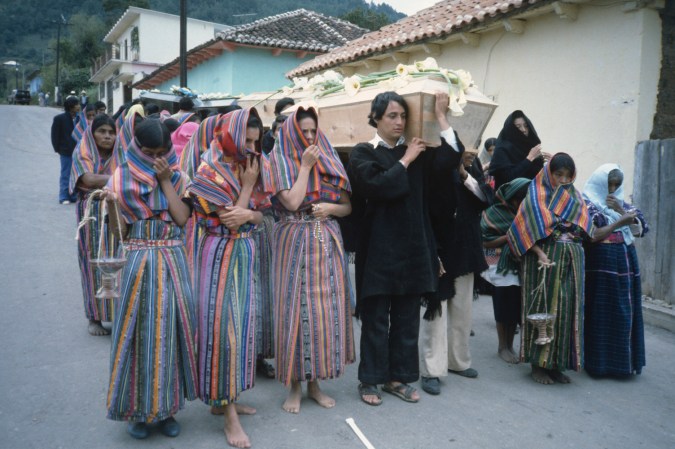White roses on a carpet of grass, butterflies flitting around a candlelit room, white peacocks in the suburbs of Los Angeles — these are some of the powerful, indelible images that come to mind when thinking about El Norte.
Gregory Nava’s Latine epic about two indigenous siblings making a harrowing journey to the U.S. after fleeing violence in their Guatemalan village still has a singular vision and legacy that’s worth revisiting. From the empathetic nature of the film to the evergreen truths the movie tells about the empty promises of the American Dream, it still feels as relevant and unique today as it did when it was released 40 years ago.
In El Norte, we meet siblings Rosa (Zaide Silvia Gutiérrez) and Enrique (David Villalpando). They live with their parents in a small Guatemalan village. The brief glimpse we get of their life here is warm, punctuated by dinners with family and friends. However, it’s not without conflict, or complications. When Rosa and Enrique’s father is killed and their mother is taken away, the siblings decide to flee north, a place that has been built up in their minds as a promised land.
Ultimately, they learn the truth: the promise of el norte is empty. Through a harrowing journey through Mexico, a nightmarish subterranean border crossing, and then, the difficulties of navigating the U.S. as undocumented people, Rosa and Enrique realize the price of their journey.

The film garnered positive reviews when it was released, and has endured over the years.

El Norte was chosen for preservation by the National Film Registry in 1995, received a Criterion release in 2009, and was restored as recently as 2019. The film’s earnest, empathetic drama, necessary moments of levity, and clever use of magical realism are several elements of the film that still hold up today. However the film’s commentary on the violence of American capitalism and anti-indigenous sentiment still cuts the deepest, and remains the strongest, most evergreen part of the film.
Early in the movie, Rosa and Enrique’s father sums it up: “To the rich, the poor are just a strong pair of arms.” The siblings’ journey is doomed from the start because the machinery of cheap labor works exactly this way: people are disposable, and money needs to be made. Shots at the wealthy and satire of class disparity might feel like a dime a dozen currently, with mainstream hits like The Menu and Triangle of Sadness being released often.

However, in El Norte, the satire draws blood when it cuts: the threat of deportation, of death even, is always present even when the wealthy gringos and scheming “pochos,” are used as points of humor or levity. They might be clueless, arrogant, and privileged, but they hold the lives of Enrique and Rosa in their hands, creating a central, terrifying tension the movie carries throughout and that feels eerily familiar to those going through their own immigrant experience in 2023.
El Norte remains a singular Latine epic forty years out, not just because of its beautiful and haunting imagery, but because it understands the violence at the heart of capitalism and what it does to those looking for the promise of the American Dream.




